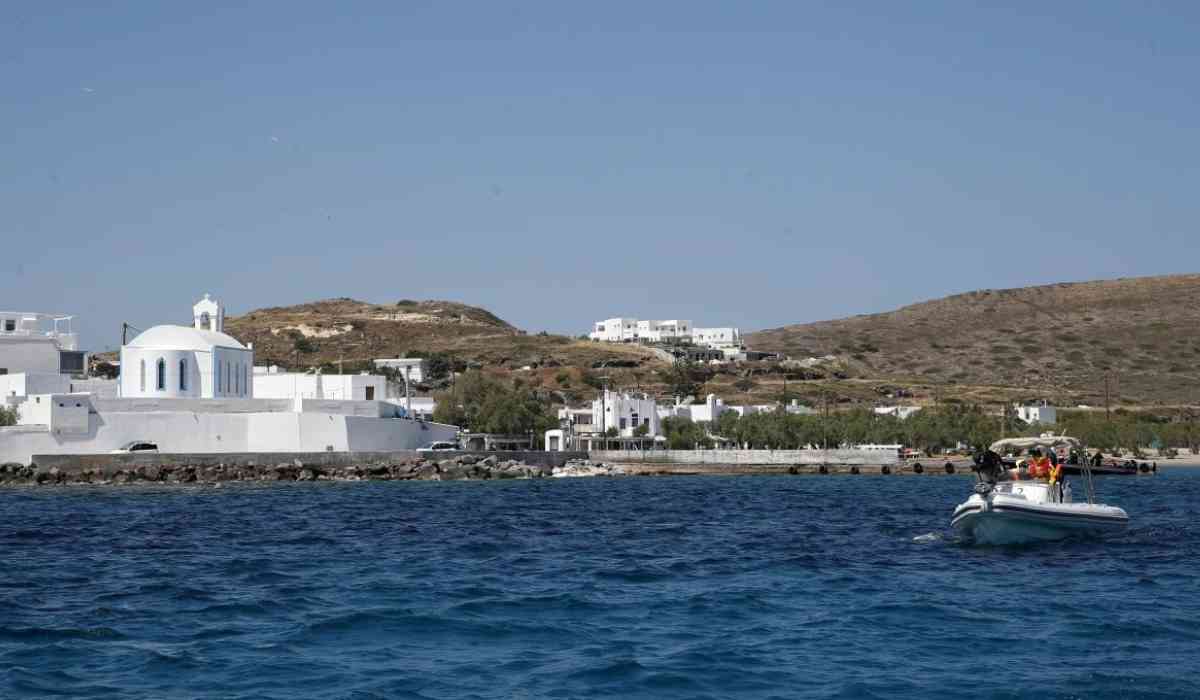At an international oceans conference, the Prime Minister of Greece unveiled plans for establishing two large marine parks as a part of a 780-million-euro initiative, directed at preserving biodiversity and marine ecosystems.
Prime Minister Kyriakos Mitsotakis revealed that these parks, one in the Ionian Sea and the other in the Aegean Sea, will increase the country's marine protected areas by 80%, covering 30% of its territorial waters, highlighting Greece's commitment to safeguarding its extensive coastline and thousands of islands.
“The ocean has paid a heavy price for its service to humankind. It has been a vital source of life and livelihood. We have not been kind to it in return,” Prime Minister Kyriakos Mitsotakis said in a speech at the Our Ocean Conference in Athens.
“So we meet today with a new sense of urgency. Our world is changing faster than our capacity to adapt to change. And this is creating immense pressures: political, economic, physical and social,” he added.
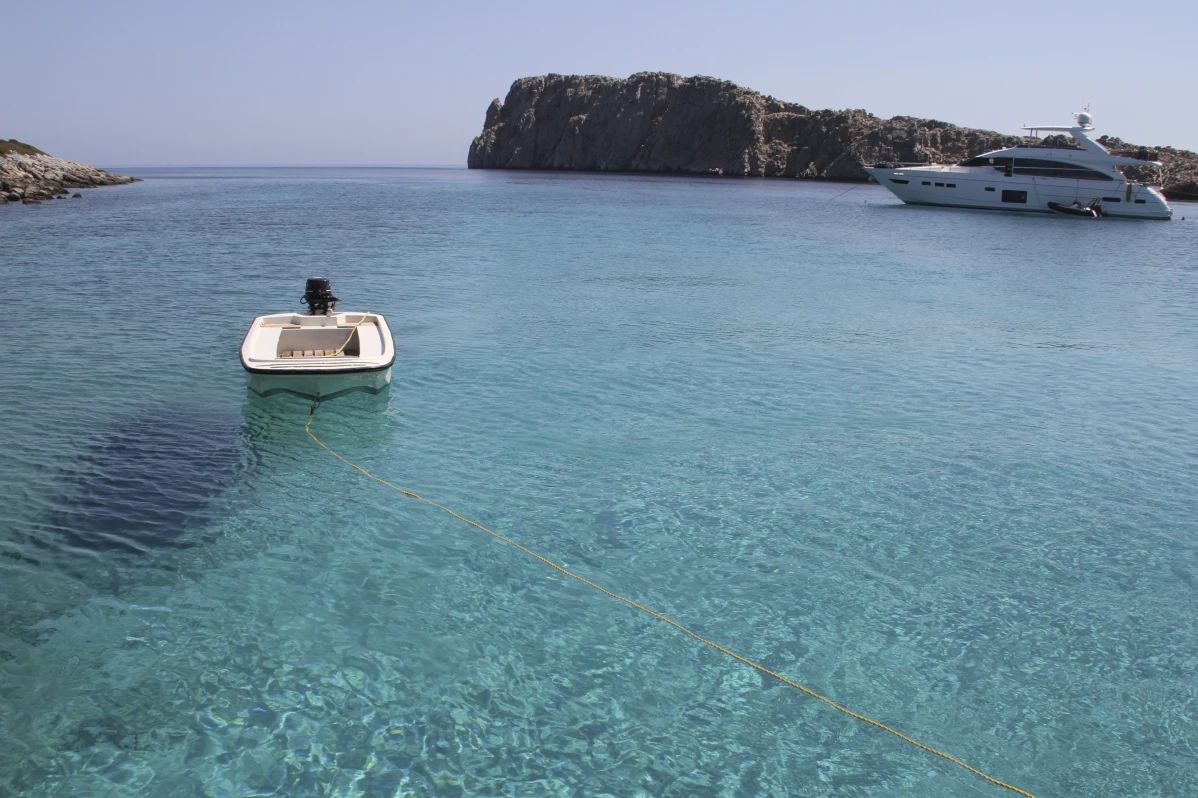
Photo Credit: AP
Greek government officials have announced that more than 300 representatives from over 100 countries and international organizations are attending the conference. They expect that these participants will unveil new commitments amounting to approximately $10 billion for projects related to the environment.
This comprehensive program involves:
Prohibiting bottom trawling: By 2030, bottom trawling will be prohibited in all marine protected areas, while a surveillance system utilising drones, satellites, and artificial intelligence will be implemented by 2026 to monitor these regions.
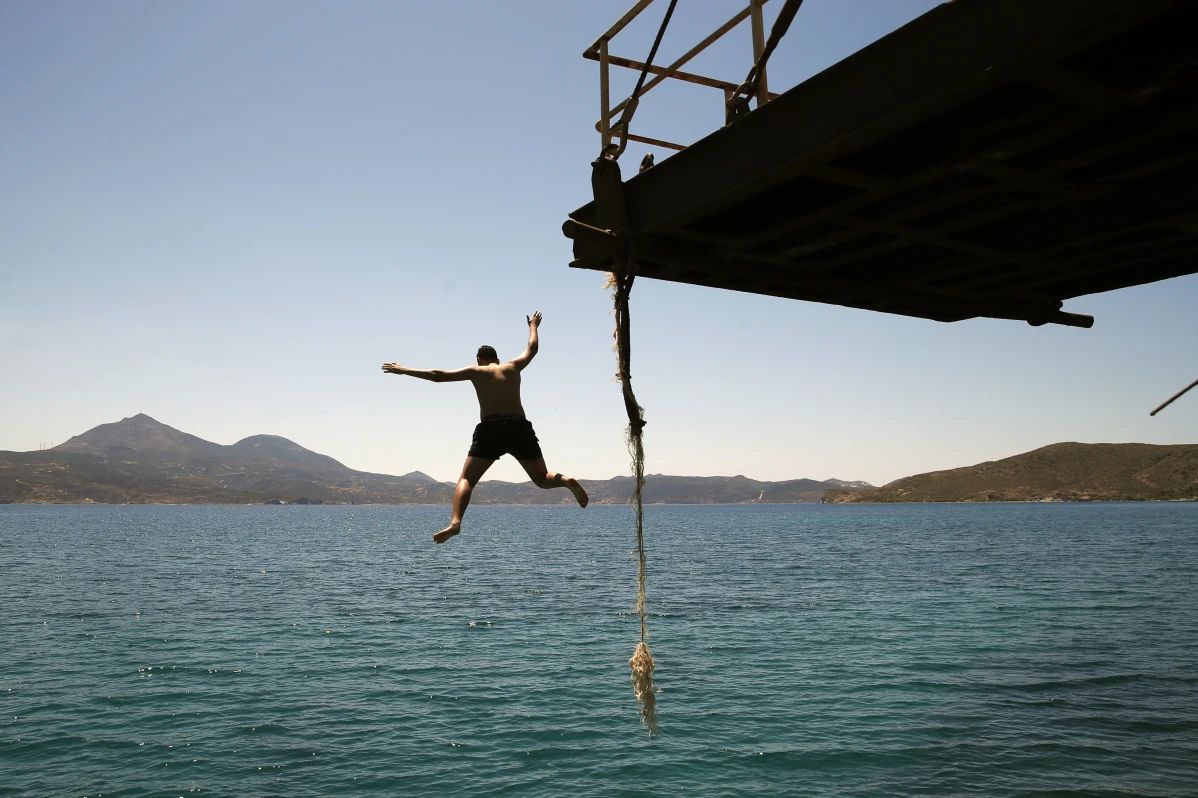
Photo Credit: AP
Addressing plastic and microplastic pollution: PM Mitsotakis also committed Greece to reducing plastic pollution in water by 50% and microplastics by 30% compared to 2019 levels by 2030.
Why did it trigger the Regional Rival Turkiye?
Turkiye is Greece's neighbour and regional rival. When the plan was announced last week, Turkiye's foreign ministry accused Athens of using environmental concerns to further its geopolitical interests.
Both countries are NATO members, but they have been in disagreement for decades, particularly regarding territorial disputes in the Aegean, which have nearly led to war three times in the last 50 years. Although relations have somewhat improved in the past year after tensions in the eastern Mediterranean, Ankara remains irritated by Greece's proposal for a marine park in the Aegean.
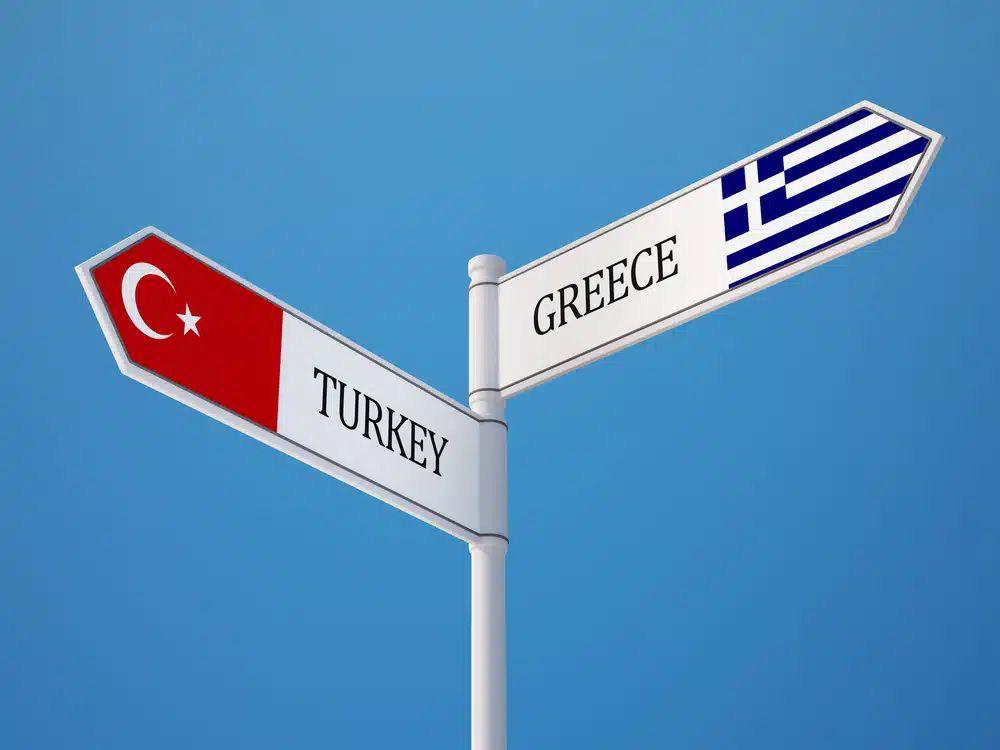
“It is known that Greece has long been trying to benefit from almost every platform in the context of Aegean problems,” the Turkish Foreign Ministry said. “Despite the recent softening in our relations, it appears that Greece is exploiting environmental issues this time.”
In response, Greece’s foreign ministry retorted that Turkiye was “politicising” a clearly environmental issue.”
“the sea is not for sale,” - says the environmental Organisations
The Initiative saw agitation as environmental organisations planned a protest near the conference venue. Despite Police prohibitions, approximately 20 protesters gathered at a nearby location, displaying banners advocating against deep-sea mining and for the preservation of the seas.
Environmental organisations argue that Greece's initiative in a way permits environmentally damaging activities like energy exploration in fragile marine areas. Operating under the slogan "the sea is not for sale," Greenpeace is urging conference attendees to implement tangible measures to safeguard marine environments.
Nikos Charalambidis, the head of Greenpeace in Greece, emphasised The conference “must not be simply an opportunity for governments to congratulate themselves for what they have said until now.”
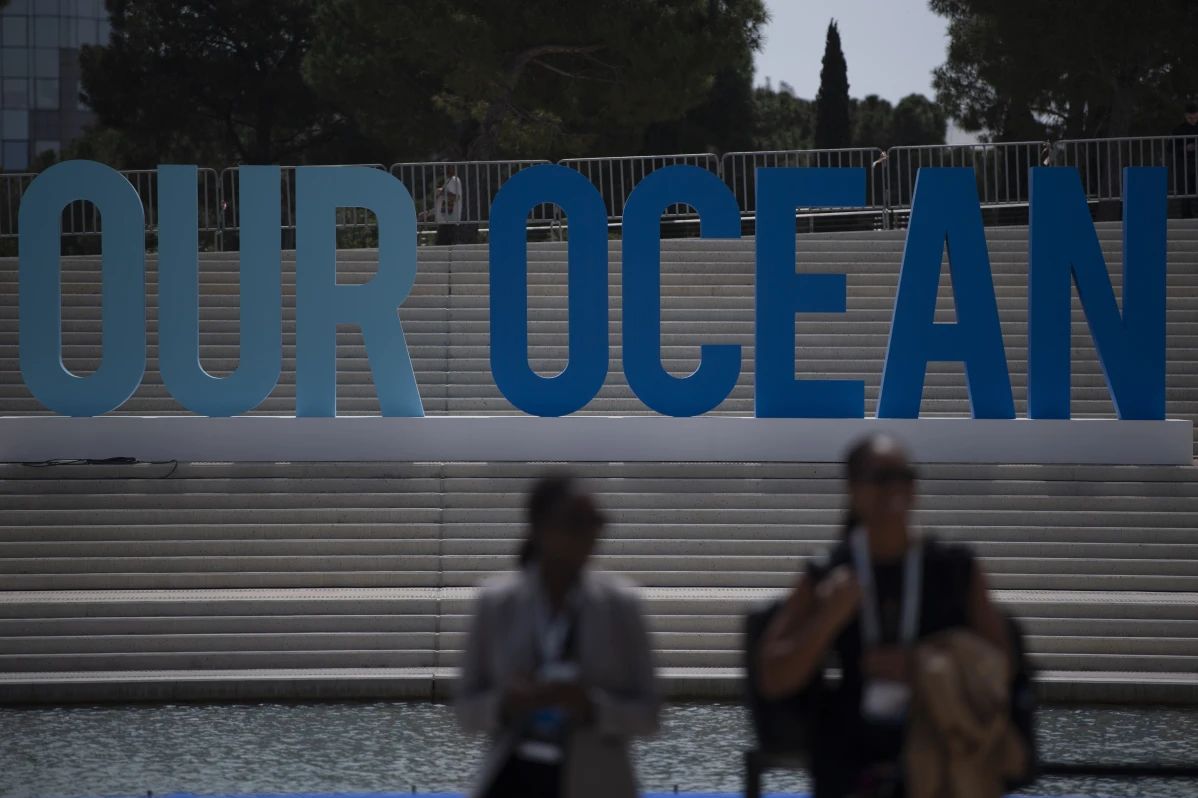
Photo Credit: AP
Greenpeace, the World Wildlife Fund, and other groups have consistently criticized Greece for permitting deep-sea seismic exploration for energy and mineral resources in the Hellenic Trench.
This trench, encompassing the deepest waters in the Mediterranean, exceeding 5,200 meters (17,300 feet) in depth, serves as a crucial habitat for the Mediterranean's limited population of sperm whales and other marine mammals. However, these creatures already face threats from fishing activities, ship collisions, and plastic pollution.
What are Greece’s Intentions?
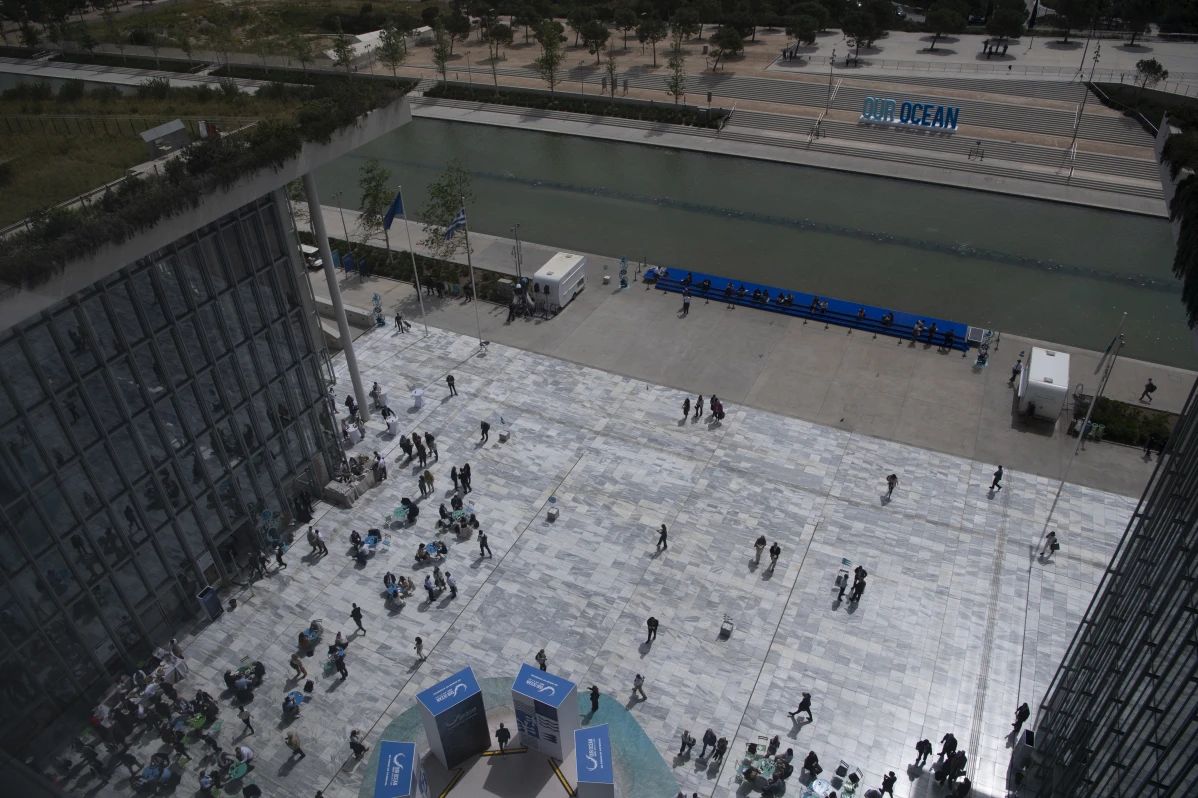
Photo Credit: AP
Greek government's justified their intentions regarding extending protection to the entire Hellenic Trench, Theodoros Skylakakis, Greece's minister for both the environment and energy, emphasised that transitioning to a green economy will necessitate substantial funding in the coming decades.
“We need to be a lot more efficient in everything we do. And not trigger our reaction by ideology but rather trigger it by science, by efficiency and by investment,” Skylakakis said.
“And for that, we will need money. If anybody thinks we can meet this challenge of paying for the adaptation. and at the same time don’t have economic growth, they don’t live in this world.”
(Inputs fom AP)
©️ Copyright 2024. All Rights Reserved Powered by Vygr Media.

